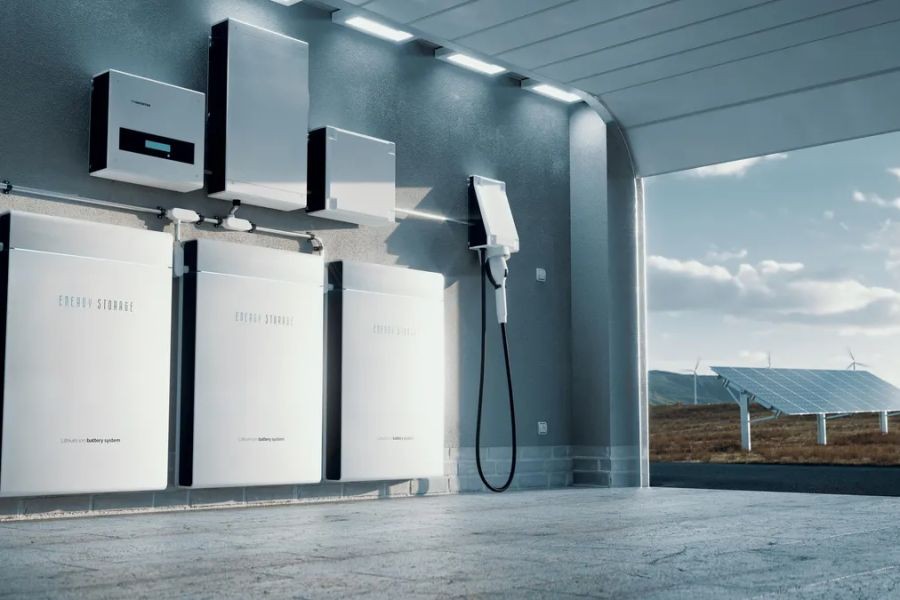In recent years, the rising interest in renewable energy has positioned home solar batteries as a supposedly attractive investment for homeowners. However, beneath the surface lies a complex landscape of financial, technical, and regulatory factors that challenge the perceived value of these systems. Particularly in Australia, where the solar market is burgeoning, understanding the true worth of investing in home solar batteries is crucial. This article delves into why home solar batteries aren't always worth the investment, offering a comprehensive analysis backed by industry insights, real-world case studies, and expert opinions.
Understanding the Australian Context
Australia's solar energy landscape is unique due to its abundant sunlight and government incentives aimed at promoting renewable energy adoption. According to the Australian Bureau of Statistics (ABS), the country has one of the highest per capita rates of rooftop solar installations globally. Despite this, the integration of solar batteries into homes remains a contentious issue due to the high initial costs and variable return on investment (ROI).
In 2023, the Australian Energy Market Operator (AEMO) reported that while solar panels have seen a significant reduction in cost, solar battery prices have not declined at the same rate. This disparity raises questions about the financial viability of these systems for the average homeowner.
Case Study: An Australian Homeowner's Experience
Consider Jane, a homeowner in New South Wales, who invested in a complete solar system with a battery backup in 2021. Her primary goal was to reduce her electricity bills and become more energy-independent. However, the financial outcomes were not as promising as anticipated.
Problem: Jane faced high upfront costs, with the battery component alone costing over AUD 10,000. Her electricity savings were modest, and the anticipated payback period extended beyond ten years, far longer than initially projected.
Action: To optimize her investment, Jane sought advice from energy consultants and updated her system's settings to maximize efficiency during peak sunlight hours.
Result: After adjustments, her electricity savings improved slightly, but the financial gains were still insufficient to justify the high initial investment.
Takeaway: This case underscores the importance of thorough financial analysis and realistic expectations when considering solar batteries. Homeowners should weigh the long-term costs against potential savings.
Pros and Cons of Solar Battery Investments
Pros:
- Energy Independence: Solar batteries provide a measure of energy independence, allowing homeowners to store energy for use during peak demand times.
- Environmental Benefits: By storing solar energy, homeowners can reduce reliance on fossil fuels, contributing to a decrease in carbon emissions.
- Government Incentives: Various Australian states offer rebates and incentives for solar battery installations, which can reduce the effective cost.
Cons:
- High Initial Costs: The upfront expense of solar batteries remains a significant barrier, with long payback periods often exceeding ten years.
- Technological Limitations: Current battery technology has limitations in terms of capacity and efficiency, which can affect overall performance.
- Variable ROI: The return on investment is highly dependent on factors such as energy prices, geographic location, and system size, making it unpredictable.
Debunking Common Myths
Myth: "Solar batteries will drastically reduce your electricity bills."
Reality: While solar batteries can contribute to electricity cost savings, the extent of these savings varies. A study by the University of Queensland found that the financial benefits often do not match the high initial costs, particularly without significant government subsidies.
Myth: "Battery technology is rapidly advancing, making current models a safe investment."
Reality: Although advancements are being made, the pace of technological improvement and price reduction for batteries is slower than for solar panels. Thus, investing in a top-of-the-line battery today doesn't guarantee immediate or significant cost benefits.
Regulatory and Market Considerations in Australia
The solar battery market in Australia is regulated by entities such as the Australian Competition & Consumer Commission (ACCC) and the Australian Energy Regulator (AER), which dictate standards and practices. These regulations can impact the overall cost-effectiveness of solar battery systems.
Recent policy shifts, like the Victorian government's solar battery rebate program, demonstrate governmental efforts to make solar batteries more accessible. However, these incentives are often limited and may not cover the entire cost, leaving consumers to shoulder the financial burden.
Future Trends and Predictions
Looking ahead, the solar battery market in Australia is poised for growth. According to a report by the Clean Energy Council, by 2030, technological advancements may reduce battery costs by up to 50%, making them more financially viable for the average homeowner. Additionally, increased integration with smart home technologies could enhance the value proposition of solar batteries, offering better energy management and efficiency.
Conclusion and Final Takeaways
- Home solar batteries offer potential benefits such as energy independence and environmental impact reduction, but high costs and uncertain ROI make them a risky investment.
- Australians considering these systems should conduct a thorough cost-benefit analysis and remain informed about government incentives and technological advancements.
- While future trends suggest improvements in affordability and efficiency, current investments require cautious evaluation.
What's your take? Have you invested in solar batteries, or are you considering it? Share your thoughts and experiences below!
People Also Ask
How do solar batteries impact electricity bills in Australia?
Solar batteries can reduce electricity bills by storing excess solar energy for later use, but the savings often depend on installation costs, energy prices, and usage patterns.
Are there government incentives for solar batteries in Australia?
Yes, several Australian states offer incentives for solar battery installations, but the availability and amount can vary, affecting the overall cost-effectiveness.
Related Search Queries
- Solar battery ROI Australia
- Government incentives for solar batteries Australia
- Solar panel vs battery cost
- Future of solar energy in Australia
- Smart home energy management Australia

































Luxuryldbags
6 months ago